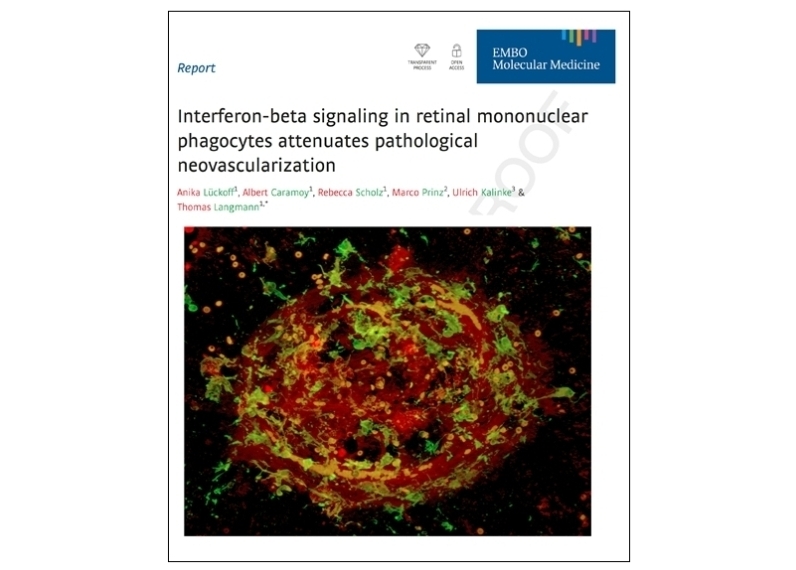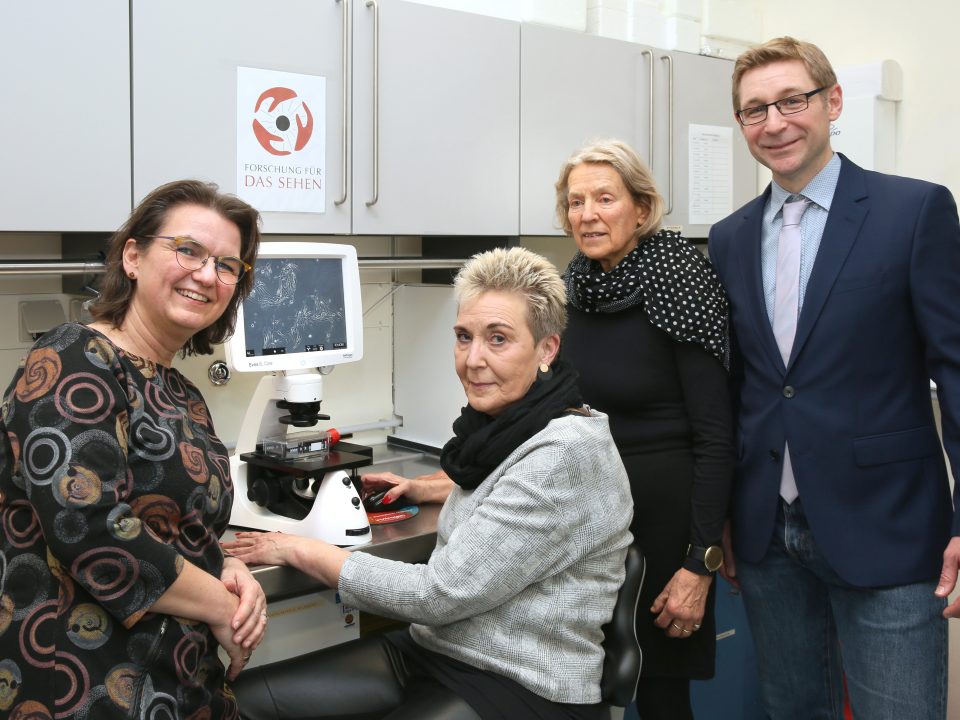How to steer a useful conversation with a protein: Interferon beta as novel therapy target for age-related macular degeneration (AMD)

A collaboration of FOR 2240 project 6 „Microglia in AMD“ (Principal Investigator Prof. Thomas Langmann) and the Bayer-University of Cologne Graduate Program of Pharmacology and Experimental Therapeutics (PhD student Anika Lückoff), together with neuro-immunology experts from Freiburg (Prof. Marco Prinz) and Hannover (Prof. Ulrich Kalinke), identified a novel role of interferon beta (IFN-beta) signaling in age-related macular degeneration (AMD). IFN-beta is a protein, part of the molecular cocktail of substances that “tell” cells what to do when under attack from a virus, etc. Sometimes, these communications do not go well for the organism. The paper appeared in the high-ranking journal EMBO Molecular Medicine that is dedicated to publishing excellent research work that bridges the gaps between basic science and translational medicine. Here, the authors show for the first time that defective interferon signaling in microglia and macrophages (green cells in the image above) can cause choroidal neovascularization (red structures in the image above), a sight-threatening condition of late-stage AMD. Although the immunomodulatory potential of IFN-beta has been studied in an experimental model of AMD, these findings underscore its strategic promise for future therapeutic approaches to controlling chronic inflammation in AMD.



